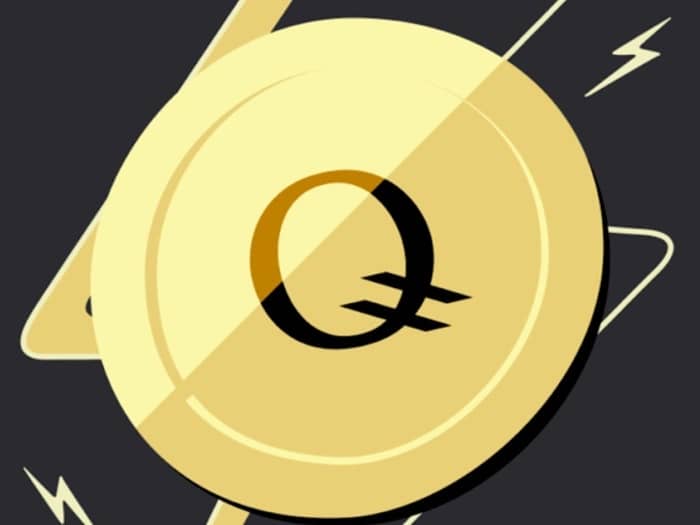订阅 wiki
Share wiki
Bookmark
Q Blockchain
0%
Q Blockchain
Q 区块链(于 2022 年 3 月推出)是一个基于 以太坊技术的独立区块链。通过利用以太坊作为其基础,Q 受益于以太坊现有的生态系统(例如,庞大的开发者社区、现有协议、应用程序和代币)。[1][2][3]
概述
Q 是 Web3 的去中心化治理层。它建立了共享治理安全的概念:模块化区块链堆栈中的一个关键原语。应用程序和协议可以选择加入 Q 的治理基础设施以进行安全升级。Q 可以防止治理漏洞,并降低与中心化决策相关的法律和监管风险。[1]
2023 年 12 月,Q 协议宣布使用国际商会 (ICC) 仲裁法院的规则来解决 DeFi 争议并执行裁决。国际商会的规则经常被实体用作进行私人仲裁的一种方式,因为它往往比基于民族国家的司法管辖区更快。[4]
共享治理安全
共享治理安全的概念基于这样一条原则:腐败治理的成本必须高于潜在的回报。这需要一个外部安全锚。Q 允许其他项目选择加入其治理框架。就像 dApp 和 L2 使用以太坊的安全属性进行交易一样,它们可以使用 Q 的安全属性进行治理。腐败其治理的成本立即增加,从而使治理攻击无利可图。[1]
Q 的核心治理架构基于治理的三位一体:规则制定、执行和争议解决。所有三个要素都是必不可少的,并且需要集成才能使治理发挥作用。一套制衡机制确保了系统的完整性。[1]
Q 代币 (QGOV)
Q 代币 (QGOV) 是 Q 区块链的原生资产。保护 Q 区块链的验证者和根节点需要在 Q 区块链上专用的智能合约中质押 Q 代币 (QGOV),以证明他们对网络的承诺。[5]
这些代币是完全可替代的,并且没有任何技术转让限制。Q 代币 (QGOV) 的价格完全由资产的供需决定。Q 代币 (QGOV) 的持有者被认为是 Q 的主要经济利益相关者。随着 Q 系统的使用,Q 代币 (QGOV) 持有者将从 Q 生态系统中产生的交易费用和其他费用中受益。[5][6]
Q 代币持有者
Q 代币持有者可以直接参与 Q 的治理决策。他们还可以将其全部或部分 Q 代币 (QGOV) 委托给验证者或验证者职位的候选人,从而增加质押给相应验证者或验证者职位候选人的 Q 代币 (QGOV) 的数量(投票)。[5]
验证者和根节点
Q 区块链由验证者和根节点维护。[5]
验证者负责通过验证交易、形成区块和记录有效交易来维护 Q 区块链的完整性,同时执行 Q 章程中概述的规则。[5]
根节点充当验证者之下的补充安全和治理层,负责监控验证者的行为,以确保符合 Q 章程。与验证者不同,根节点不参与交易验证或区块链修改,而是专注于监督验证者活动,以增强 Q 网络的整体安全性。验证者和根节点都需要运行 Q 完整节点才能有效地履行其职责。[5]
效用
参与治理
QGOV 代币持有者可以通过委托来保护网络并通过促进不断扩展的 Q 生态系统中的交易来塑造协议的未来。他们可以通过提出变更和参与投票来实现这一点,他们可以委托他们的投票权,并在 Q 生态系统中承担明确的角色。[7]
质押和委托
Q 区块链基于委托权益证明 (DPoS) 基础运行,并且质押 Q 代币 (QGOV) 是其安全性和去中心化的组成部分。QGOV 代币持有者可以将他们的代币委托给一个或多个验证者。反过来,验证者会与委托者分享他们奖励的一部分。该系统确保网络保持安全和去中心化。[7]
此外,委托的 QGOV 代币持有者越多,网络的安全性就越强。通过将他们的代币分散到多个验证者中,委托者有助于降低验证者集中化和“财阀统治”的风险。[7]
Q 上的交易支付
QGOV 代币是 Q 区块链的原生代币,这使得它们对于在生态系统中进行交易至关重要。它们对于投票、质押、参与节点操作或使用集成应用程序期间的协议内功能非常有用。此外,在 Q 之上构建的其他协议和应用程序中的交易也需要 Q 代币 (QGOV)。[7]
与 NFT 交互
鉴于 Q 区块链的 EVM 兼容性,支持各种类型的 NFT,例如 ERC721、ERC1155 和 SoulBound NFT。所有这些都由 Q 代币 (QGOV) 提供支持,以支付交易成本,并且如果在 NFT 逻辑中实施,则每次 NFT 在市场上交易时,都会向 NFT 所有者收取版税。[7]
共识
Q 区块链在无需许可的点对点网络上运行,该网络利用委托权益证明 (DPoS)机制来实现网络共识。在这种机制中,称为验证者的网络节点子集就网络状态达成共识。[5]
用户通过投票给负责验证交易的“见证人”来参与共识过程。由他们收到的票数决定的顶级见证人有权验证交易。用户可以选择将其投票权委托给受信任的个人,以代表他们投票给见证人。每个投票的权重与投票者持有的股份成正比。因此,股份相对较小的用户可以通过股份较大的用户的支持来晋升为顶级见证人。DPoS 通过促进高交易吞吐量和可预测的交易成本来增强可扩展性。[5]
Q ID
Q ID 是 Q 区块链上的身份应用程序。Q ID 识别想要与 Q 的需要唯一识别自然人的元素进行交互的自然人。只有可以预期能够以合理的确定性确定唯一自然人存在的应用程序才能用作发行 Q ID 代币的基础。拥有 Q ID 的人可以参与 Q 的治理。[5]
合作伙伴
- GOSH
- Koii Network
- DeSci.World
- ElkNet
- HyperNest Grant Program
- wom3n.DAO
- Coorest[8]
发现错误了吗?
